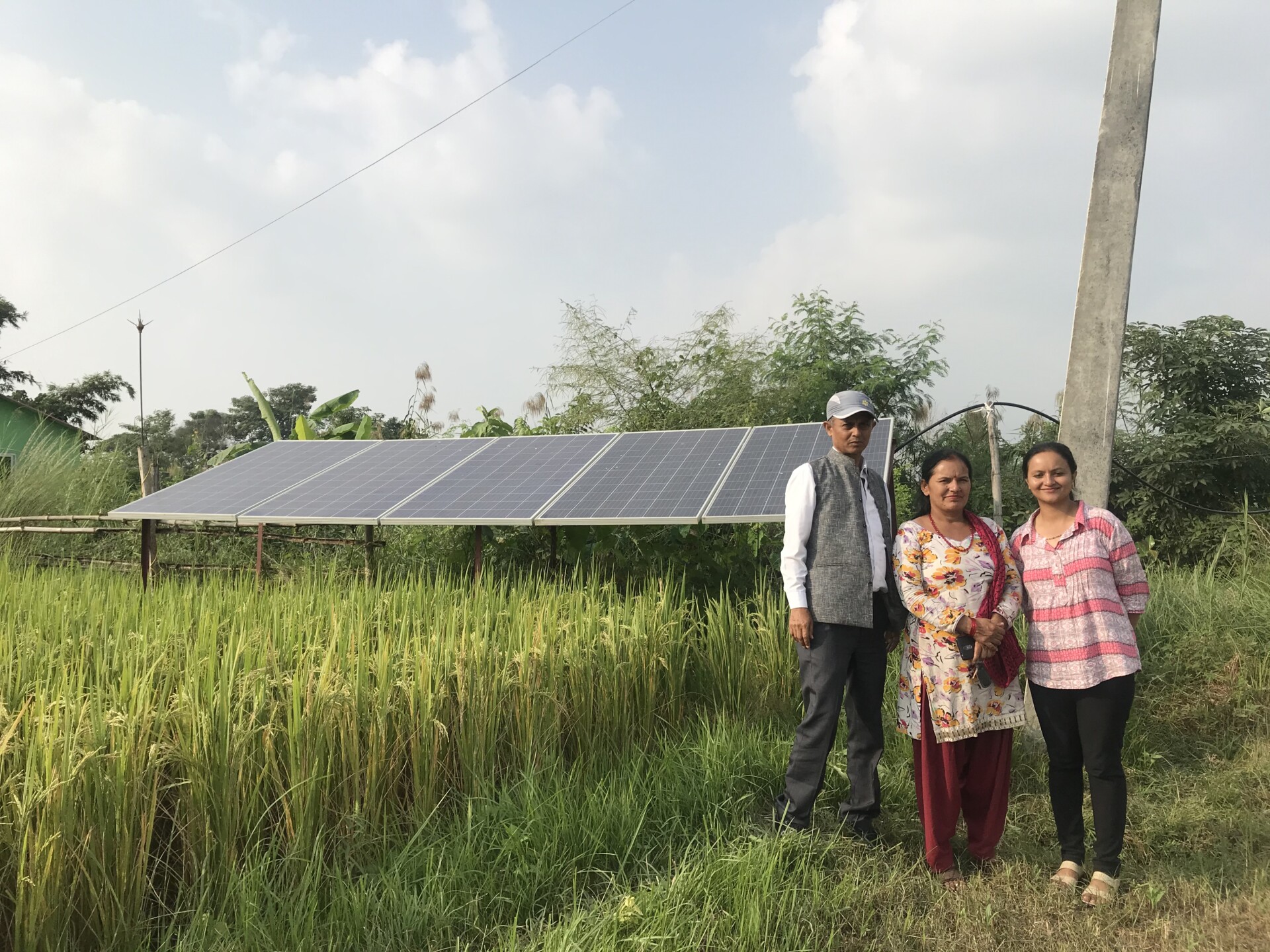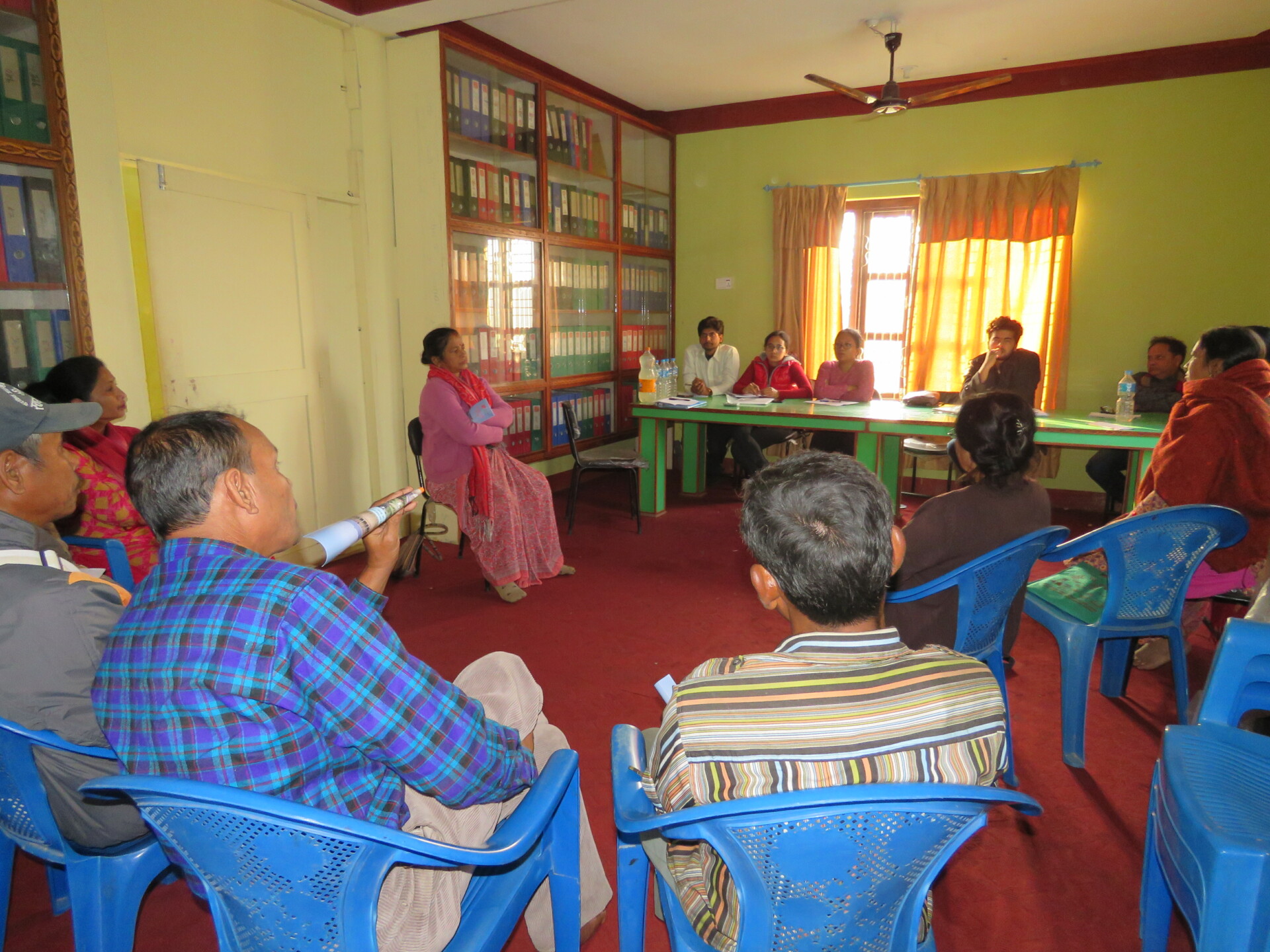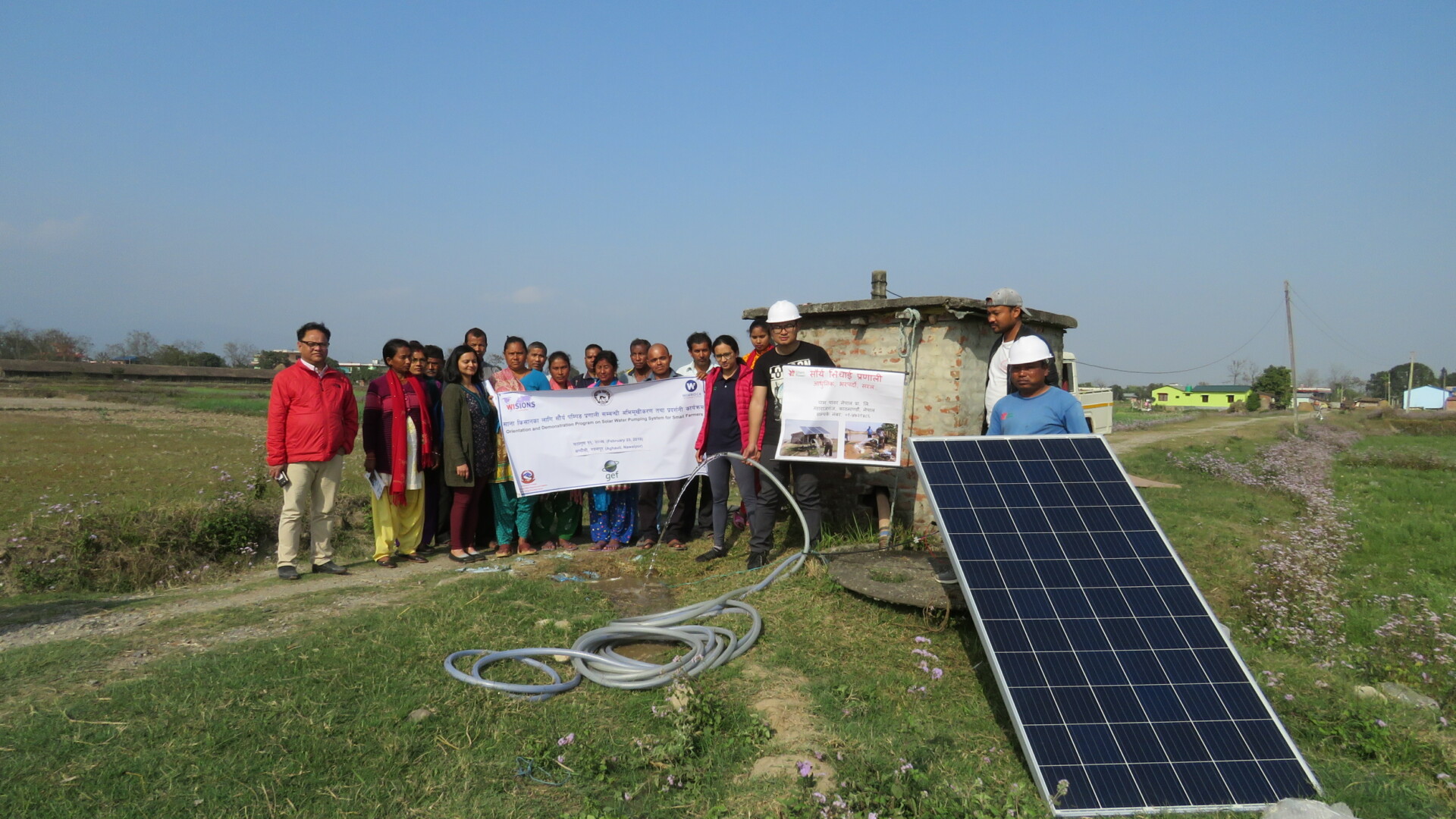To scale-up the use of solar water pumping systems and provide reliable irrigation.
Exchange Needs and Objectives

Participants & Target Group(s)
This exchange aimed at increasing the knowledge and capacities of farmers and farmers cooperatives, financial institutions, supplier companies and policymakers in rural municipalities. Eight smallholder farmer agricultural cooperatives were selected to take part in the project.Activities
The project organised various workshops and demonstration programs in three districts of Nepal for board members of SFCALs and smallholder farmers to demonstrate the technology and share best practices. They developed a training package and information materials (such as posters and booklets) in Nepali. Furthermore, they facilitated the development of a network of municipalities, different SFACLs, farmers, SWP supplier companies to promote SWP systems and upgrade subsistence farming to commercial farming. As access to finance is a major obstacle to SWPs, the project provided farmers with information about the Alternative Energy Promotion Centre (AEPC) subsidy programme and other finance options from financial institutions.
Results & Impact
Almost 700 people from all sectors were engaged in the project and in the end 29 farmers were selected for the AEPC subsidy programme in 2020. By the end of 2020, 17 farmers that attended the workshops had installed a SWP system, from which a majority was installed under the AEPC programme and only one with support from a financial institution. Since most of the SWP systems had not been long installed by the end of the project, the farmers were unable to calculate the precise increases in their income. However, experience from a previous project showed, that farmers with a SWP system were able to increase their annual income up to 50%. The technology had enabled them to increase crop cycles, fish and livestock farming. Due to savings on diesel, they had also reduced their operating costs. Further results were an increased interest of farmers to start commercial vegetable farming due to the reliable irrigation and the willingness to provide their neighbour's farm with surplus water if required. Additionally, the SFACLs that took part have made arrangements for the provision of credit to farmers who want to install a SWP system.
Lessons Learned
SWP system can be a more financially attractive option in areas where irrigation is highly dependent on diesel pumps because of potential fuel savings and higher incomes through commercial farming. Therefore, knowledge exchange programmes should be combined with training on commercial farming. Raising awareness of the technology and its benefits among finance institutions is crucial. In areas where farmers do not receive government subsidies, credit finance should be promoted for SWP systems, with a particular focus on commercial sectors such as aqua culture or livestock farming. Further lessons learned concern associated environmental issues: the ground water levels are quite low in some areas, which makes it difficult to extract enough water for irrigation. In addition, the installation and demonstration of an SWP system in river water was sometimes challenging as the water was often heavily polluted. You can find the detailed summary of this project for download on top of this page!Project Summary SP_014

Projects with same technology
Exchange: Community Trainers for Renewable Energy Technology Use in Sustainable Food Production and Water Management
The focus of this exchange activity is a social alliance and collective learning process between NGOs and rural communities from three regions of Colombia (Santander, Córdoba and Antioquia). It is based on the accumulated results achieved previously in a WISIONS supported project and ongoing community work in the field of renewable energy and sustainable livelihood strategies.
Renewable Energy For Drip Irrigation Of Horticultural Crops
To apply renewable energy technology for irrigation purposes replacing fuel based water pumps, saving water, fuel and CO2 emissions
Projects in same country
Exchange: A Country Level Market Assessment for Small Wind Turbines
This project aims aims to support small wind turbine technology in Nepal by conducting a detailed national market assessment for small wind turbines and consolidating existing experience in the development and implementation of small wind turbines in the country.
Promoting the Long-Term Use of Micro-Hydro Systems by Providing Energy to Rural Enterprises in Nepal and India
This projects aim was to ensure the sustained operation of existing micro-hydro plants through rehabilitation, optimisation, increased financial stability, capacity-building and management support